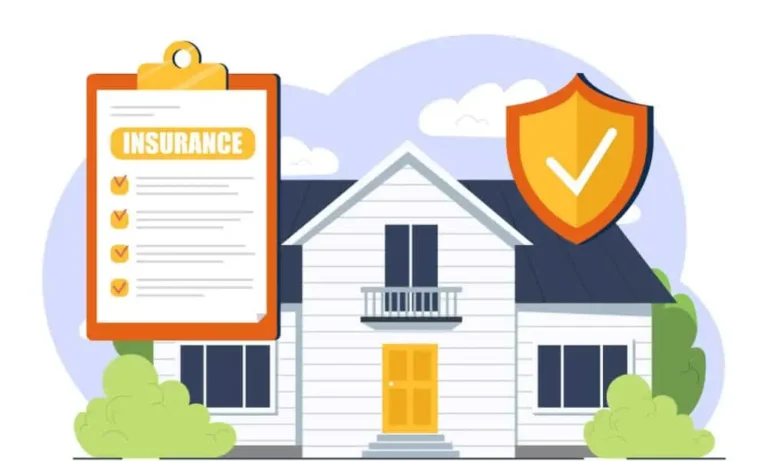
Many property owners assume their existing policy will cover an empty home or that any low-cost option will do. But the options and variations in the market are a nightmare, making it hard to choose the right policy. ]
Getting it wrong can lead to underinsurance, rejected claims, and unnecessary stress, especially during probate or renovations.
Read on to find out more.
Before doing anything else, choose the right policy type:
Once that’s sorted, avoid these common mistakes that many people make when arranging home insurance for unoccupied property.
Underinsurance is one of the most common issues in property insurance. Many people use the home's market value, not realising that policies should be based on the rebuild cost. If you claim and are underinsured, the payout could be reduced in proportion.
If you’re unsure, use a rebuild estimate based on the number of bedrooms (if four or fewer) or consider a professional report. We recommend services like Barrett Corp Harrington for accurate assessments.
Some insurers offer basic coverage that only includes Fire, Lightning, Earthquake, Explosion, and Aircraft (FLEEA) risks. While this may seem like a good deal, it leaves out key protections like escape of water, flood, subsidence, theft, and vandalism.
Unless you are confident, avoid FLEEA-only cover for unoccupied property insurance.
From 31st October to 31st March, Insuristic policies require that heating is left on continuously at a minimum of 15°C unless the water system is fully drained. Failing to meet this condition could result in escape-of-water claims being capped or rejected.
Most insurers, including Insuristic, require regular inspections to keep your home insurance for unoccupied property valid.
Some insurers insist on written reports for each visit, but these don’t prove you were physically present, and may not be accepted if created after a claim arises.
Insuristic makes this easier. You can take two photos on your phone during each inspection,one inside and one outside, and keep them safely stored. These are only needed if you make a claim, but serve as clear, time-stamped proof that inspections were completed on schedule.
If you are leaving belongings in the property, such as furniture, freestanding appliances, or household goods, they are not protected by Buildings insurance.
You must add Contents Cover and ensure the sum insured reflects the full replacement cost as new. However, you must be aware of two critical distinctions:
Valuables Exclusion: most unoccupied policies exclude high-risk items such as jewellery, gold, silver, watches, furs, or stamp and coin collections. These items should be removed from an empty property as they are not covered.
Insuristic Benefit: Unlike many standard insurers who classify them as contents, our policy includes carpets, curtains, and blinds under Buildings cover. This simplifies your requirements and ensures these essential fixtures are protected without increasing your contents sum insured - and your price.
If the home is mortgaged, always list the lender as an interested party on your insurance policy.
Failing to do so won’t void the cover, but it can cause serious issues if you need to make a claim.
For example, the lender must be informed about major losses that could impact the property’s value or future use, especially if their investment is at risk. Including them ensures smoother communication and protects both parties.
Many insurers apply hidden administration or cancellation fees that drive up the true cost of cover, especially if your circumstances change.
Benefit for Insuristic Policyholders: We don’t believe these charges are fair. That’s why we never apply admin or cancellation fees and offer pro-rata refunds if you cancel early (as long as no claims have been made). What you see is what you pay for with no hidden surprises.
Some insurers outsource claims handling to call centres or third-party administrators, which can lead to delays and confusion, especially when you need urgent support.
Insuristic policyholders deal directly with our underwriter’s UK-based claims team, not a call centre. You’ll have access to expert support during office hours, plus 365-day out-of-hours assistance and helpful guidance if you ever need to make a claim. Their claims telephone number is easy to find on the first page of your policy schedule.
To get a quote or find out more about our policy cover, please visit the page that is appropriate to your situation:
If you have further questions, visit our Unoccupied Home Insurance FAQs or Probate Insurance FAQs pages.

Rob Faulkner is an ACII Chartered Insurance Broker with nearly 30 years' experience in the UK insurance market. He is also a Chartered Manager and a Member of the Chartered Institute of Marketing.
As the founder of Insuristic, Rob has developed clear, flexible insurance solutions for property owners and people managing empty homes.
He writes regularly on property and business insurance, with a particular focus on probate insurance, unoccupied home insurance and risk management, areas where he brings deep expertise.
Rob is especially passionate about product development and insurance education, helping people understand what they are buying. These values shape everything we do at Insuristic.
Want to learn more? Visit my author page or follow me on LinkedIn.

Insuristic Limited is an Appointed Representative of SJL (Worcester) Ltd, who are authorised and regulated by the Financial Conduct Authority with the reference number 763599. This can be checked by visiting https://register.fca.org.uk/s/.
Registered Office: Unit 2, 262 Walsall Road, Cannock, England, WS11 0JL. Registered in England and Wales No: 13926650.
Insuristic is a registered trademark. ©Copyright 2023 Insuristic Limited. All Rights Reserved.
Please Note: Our broking team at SJL Insurance will need to talk to you to discuss your requirements. This is an advised service.
Please Note: Our broking team at SJL Insurance will need to talk to you to discuss your requirements. This is an advised service.
Please Note: Our broking team at SJL Insurance will need to talk to you to discuss your requirements. This is an advised service.
Please Note: Our broking team at SJL Insurance will need to talk to you to discuss your requirements. This is an advised service.
Please Note: Our broking team at SJL Insurance will need to talk to you to discuss your requirements. This is an advised service.
Please Note: Our broking team at SJL Insurance will need to talk to you to discuss your requirements. This is an advised service.